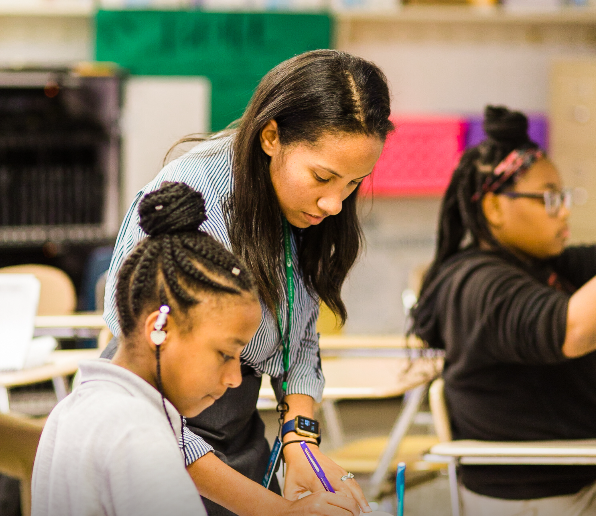Impact & Results
NCTR Network residencies are having a significant impact on the students in their partner district schools.
Through the residency model’s teacher-mentor programming, residents work side-by-side with veteran teachers – a key element of their intensive clinical preparation.
Our Impact
Residency programs measure their impact on schools and communities, impact on teacher professional growth, preparedness and development, and their impact on student achievement. By reducing teacher turnover and improving effectiveness, there is a high return on investment for school districts and their partners that choose to launch and sustain a teacher residency program. Teacher residency programs exponentially increase the impact effective teachers have on student learning.
26
states have NCTR residencies that effectively prepare teachers
47
NCTR Network residency programs are available throughout the U.S.
2,261
teacher residents recruited & prepared by NCTR Network residencies for 2021-2022
500,000+
students have been taught by graduates of NCTR Network residency programs since 2007
*Based on 2022-2023 Annual Report data.
Why NCTR Residencies
- 69% of teacher residents in NCTR partner programs for 2022-2023 identified as a person of color, whereas only 21% of new teachers nationally identified as people of color (U.S. Department of Education, 2019).
- The number and percent of NCTR teacher residents identifying as a person of color has increased significantly over time. Not only do residencies recruit and attract teachers of color into the field, but they also elevate effective teachers of color into leadership positions.
- NCTR Network continues to effectively prepare teacher residents for their roles in the classroom with 92% of principals reporting that the graduates are more effective than the typical first-year teacher (NCTR Annual Report, 2022-2023).

Ashley Tate is a teacher resident at the Nashville Teacher Residency. This photo was taken at Cameron Middle School.
In 2017, NCTR worked with the largest number of programs in our history. Our strategic consulting group supported 14 new or emerging programs, while our Next Generation Network of established teacher residencies grew to 24. In addition, NCTR partnered with the California State University System to transform the traditional teacher prep programs at five campuses into residencies or programs that use NCTR’s standards of clinical teacher preparation.
The 2017-18 network-wide data reveals the continued impact of residency program residents, graduates, and mentors working in partnering high-need districts. Teachers who trained in the residency model stay in the classroom at high rates: 86% are still teaching in the same school after 3 years. Programs are identifying and supporting effective, experienced teachers to act as mentors and clinical educators; more than 1,000 mentors are modeling and coaching new teachers to be their future colleagues.